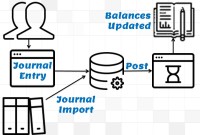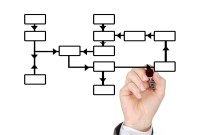- Home
- Business Processes
- Industry Knowledge
- Aerospace Industry
- Automotive Industry
- Banking Domain
- BFSI Industry
- Consumer/ FMCG Industry
- Chemicals Industry
- Engineering & Construction
- Energy Industry
- Education Domain
- Finance Domain
- Hospitality Domain
- Healthcare Industry
- Insurance Domain
- Retail Industry
- Travel and Tourism Domain
- Telecom Industry
- Leadership Skills
- eLearning
- Home
- Functional
- General Ledger (Record to Report)
- Global Business Services (GBS) Model
Global Business Services (GBS) Model
Global business services (GBS) is an integrated, scalable, and mature version of the shared services model. Global Business Services Model is a result of shared services maturing and evolving on a global scale. It is represented by the growth and maturity of the Shared services to better service the global corporations they support.
Global business services (GBS) is an integrated, scalable, and mature version of the shared services model. Global Business Services Model is a result of shared services maturing and evolving on a global scale. It is represented by the growth and maturity of the Shared services to better service the global corporations they support. Global Business Services framework adds value to the shared services model by taking the model beyond labor arbitrage. This model adds consistent approaches to global services strategy formation, transition, and governance resulting in improved collaboration across the entire enterprise ecosystem. GBS provides services beyond transactional functions and provides value to the organization by enabling standardization, scalability, technology, well defined and optimized processes and business analytics. Under this model the entire organization collectively start leveraging global business services to accelerate attainment of corporate strategies.
General Electric, Bank of America, American Express are some examples who have already established Global Business Services model for their entire finance functions where a Global Operations Finance Team provides record to report and statutory and tax compliance services to all the businesses under its umbrella.
Main Features of GBS model:
- Integrated compilation of service offerings for multiple support functions within a company
- Global in nature with respect to both delivery centers and customers
- Service provides can be both internal and/or external
- Service providers are managed centrally by GBS organization
- Service offerings by GBS are standardized and follow process model with defined roles and responsibilities and handshakes at each interaction
- Global process ownership
- Integrated application suite(s)/Information Systems across the enterprise with well-defined processes and best practices
- Virtual centers of expertise to build and disseminate subject-matter expertise
- Defined and well tracked operational metrics to measure speed, quality and costs
- Standardization of processes and practices that result in the GBS organization being run like an independent entity
- Ability to take competitive advantage of cost arbitrage and third party expertise
- Mix of service delivery models - Captive offshore; In-house shared services centers; outsourced delivery models; “hybrids”
Value drivers of GBS Model
- Cost savings through economies of scale and labor arbitrage
- Simplification and standardization of processes
- Advanced analytics and visibility across different structures (legal/operational) of the enterprise
- Ability to hire and retain global talent
- Skill arbitrage: value derived from access to higher-skilled labor across globe
- Ability to work in shifts leveraging the time zone differences across globe
- Ability to deploy advanced tools and technology
- Ability to deliver scalability to processes and functions
Functions that can be shared across business units
- Sourcing and Procurement
- Buy to Pay – Accounts Payable
- Invoice to Cash – Accounts Receivable
- Payroll Management
- Record to Report – General Ledger
- Fixed Assets Management
- Statutory Reporting and Tax Reporting
- Human Resources
- Information Technology
- Vendor Management
- Customer Management
- Master Data Maintenance
All the models described above represent matrix structures. However, Matrix Structures can become overly complex, effectively having to uphold two hierarchies, with potential tensions between the two.
Related Links
You May Also Like
-
GL - Different Type of Journals
Two basic types of journals exist: general and special. In this article, the learner will understand the meaning of journalizing and the steps required to create a journal entry. This article will also discuss the types of journals and will help you understand general journals & special journals. In the end, we will explain the impact of automated ERPs on the Journalizing Process.
-
Business Metrics for Management Reporting
Business metric is a quantifiable measure of an organization's behavior, activities, and performance used to access the status of the targeted business process. Traditionally many metrics were finance based, inwardly focusing on the performance of the organization. Businesses can use various metrics available to monitor, evaluate, and improve their performance across any of the focus areas like sales, sourcing, IT or operations.
-
Multitude of these legal and operational structures clubbed with accounting and reporting needs give rise to many reporting dimensions at which the organization may want to track or report its operational metrics and financial results. This is where business dimensions play a vital role.
-
GL - Journal Posting and Balances
In this tutorial, we will explain what we mean by the posting process and what are the major differences between the posting process in the manual accounting system compared to the automated accounting systems and ERPs. This article also explains how posting also happens in subsidiary ledgers and subsequently that information is again posted to the general ledger.
-
An allocation is a process of shifting overhead costs to cost objects, using a rational basis of allotment. Understand what is the meaning of allocation in the accounting context and how defining mass allocations simplifies the process of allocating overheads to various accounting segments. Explore types of allocations and see some practical examples of mass allocations in real business situations.
-
Internally, an organization can be structured in many different ways, depending on their objectives. The internal structure of an organization will determine the modes in which it operates and performs. Organizational structure allows the expressed allocation of responsibilities for different functions and processes to different entities such as the branch, department, workgroup and individual.
-
Hierarchical Organization Structures
Hierarchical structure is typical for larger businesses and organizations. It relies on having different levels of authority with a chain of command connecting multiple management levels within the organization. The decision-making process is typically formal and flows from the top down.
-
Understand what we mean by GAAP to STAT adjustments. This article discusses the different standards that are used for multiple representations of the financial results for global organizations. Understand the meaning of US GAAP, Local GAAP, STAT, IFRS, and STAT. Finally, understand why accounting differences arise and how they are adjusted for different financial representations.
-
In most of the automated financial systems, you can define more than 12 accounting periods in a financial year. This article will explain the concept of the adjustment period and the benefits of having adjustment periods. Adjustment periods have their inherent challenges for the users of financial statements and there is a workaround for those who don’t want to use adjustment periods.
-
Legal Structures in Businesses
Businesses not only vary in size and industry but also in their ownership. Most businesses evolve from being owned by just one person to a small group of people and eventually being managed by a large numbers of shareholders. Different ownership structures overlap with different legal forms that a business can take. A business’s legal and ownership structure determines many of its legal responsibilities.
Explore Our Free Training Articles or
Sign Up to Start With Our eLearning Courses

About Us
Learning
© 2023 TechnoFunc, All Rights Reserved











